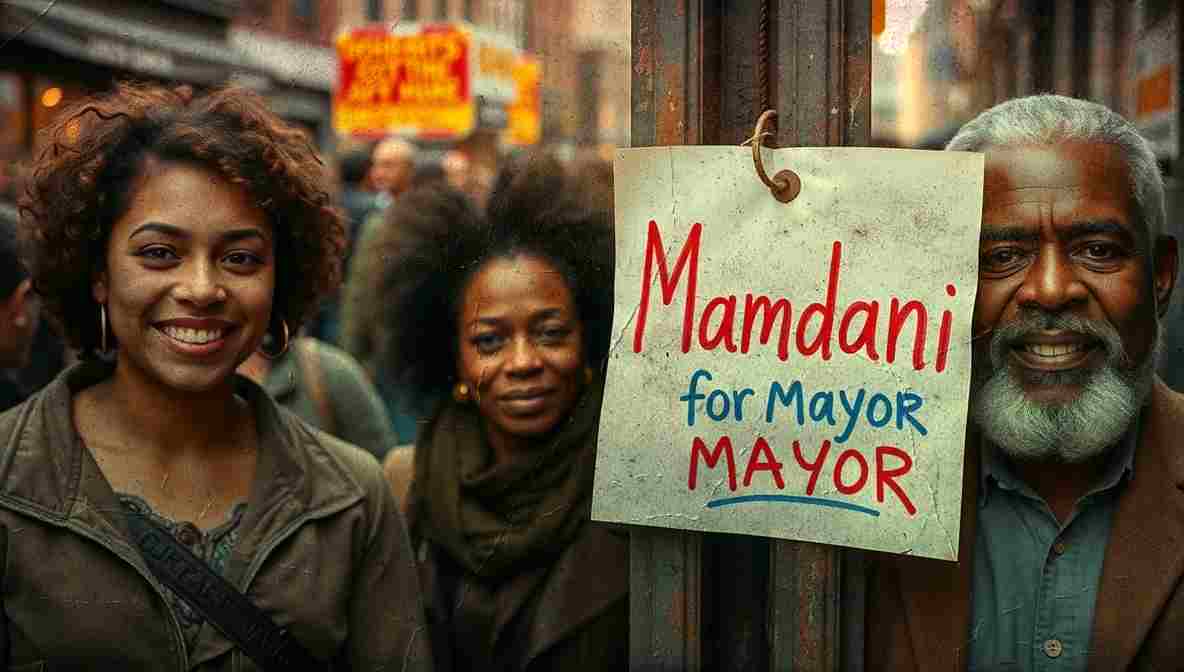Ideological Attacks Dominate NYC Mayoral Race Rhetoric
Throughout the mayoral campaign, Zohran Mamdani faced persistent attacks labeling him a “communist” and questioning his commitment to American democratic capitalism. Former President Donald Trump’s characterization of Mamdani as a “Communist Lunatic,” as reported by TIME Magazine (https://time.com/7297832/trump-zohran-mamdani-reaction-communist-lunatic/), represented the most high-profile of these attacks, which became a defining feature of the race’s final months. The ideological labeling reflected long-standing American political traditions of red-baiting and questioning opponents’ patriotism. Critics pointed to Mamdani’s membership in the Democratic Socialists of America, his support for public ownership of certain utilities, and his calls for substantial wealth redistribution as evidence of communist sympathies. Conservative media outlets and Republican politicians consistently described his platform as radical and outside mainstream American political thought. Mamdani and his supporters rejected these characterizations, arguing that his policies align with social democratic traditions common in Western Europe rather than communist ideology. They emphasized that his platform supports democratic governance, market economics with stronger regulations, and expanded social programs rather than state control of all economic activity. The democratic socialist label, they argued, reflects a commitment to economic democracy and worker empowerment, not Soviet-style communism. The definitional debates about socialism and communism became a persistent campaign theme. Political scientists note important distinctions between democratic socialism, which supports democratic political systems with more equitable economic arrangements, and communism, which historically has involved one-party states and comprehensive government control of the economy. The Merriam-Webster Dictionary (https://www.merriam-webster.com) defines these terms distinctly, though they are often conflated in political rhetoric. The New York Post (https://nypost.com/2025/07/15/us-news/trump-delivers-shocking-response-to-andrew-cuomos-independent-bid-for-mayor-against-communist-mamdani/) reported on Trump’s “shocking response” to Andrew Cuomo’s independent mayoral bid against “communist” Mamdani, showing how the ideological framing persisted even as the general election approached. The former president’s intervention in a local race demonstrated the national significance attributed to Mamdani’s candidacy. Campaign strategists debated whether the communist attacks helped or hurt Mamdani. Some analysts believed the attacks backfired by making critics appear extreme and out-of-touch, particularly with younger voters less influenced by Cold War-era anti-communist sentiment. Others argued the labels created doubts among moderate voters concerned about economic radicalism. Mamdani’s campaign responded by emphasizing concrete policy proposals rather than ideological abstractions. They focused messaging on affordable housing, healthcare access, and job qualityissues that polling showed concerned voters regardless of ideological identification. This approach aimed to reframe debates from philosophical discussions about economic systems to practical questions about improving New Yorkers’ lives. The campaign also highlighted Mamdani’s biography as the son of immigrants who came to America seeking opportunity, positioning him within traditional American narratives of upward mobility and democratic participation. His supporters argued that expanding economic opportunity and reducing inequality strengthened rather than threatened American values. Historical parallels to earlier red-baiting campaigns emerged in campaign discourse. The American Civil Liberties Union (https://www.aclu.org) has documented how accusations of communism have been used throughout American history to delegitimize progressive reform movements, from labor organizing to civil rights advocacy. Whether current accusations against democratic socialists follow similar patterns remains debated. As Mamdani prepares to govern, questions persist about whether ideological polarization will continue dominating political discourse or whether focus will shift to practical governance questions. His performance as mayor may influence whether democratic socialist candidates face similar attacks in future campaigns or whether the label becomes normalized within mainstream American politics. The intense focus on ideological labeling during the campaign reflected broader American debates about capitalism, inequality, and economic systems. These conversations will likely continue as Mamdani implements his agenda and other progressive candidates seek office nationwide.



